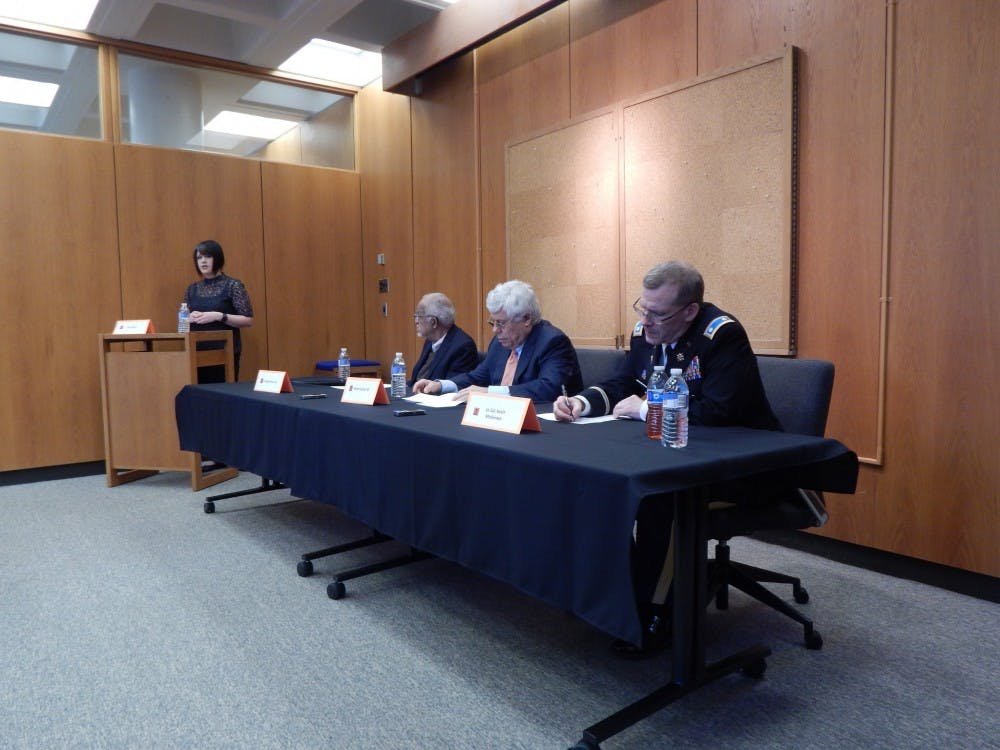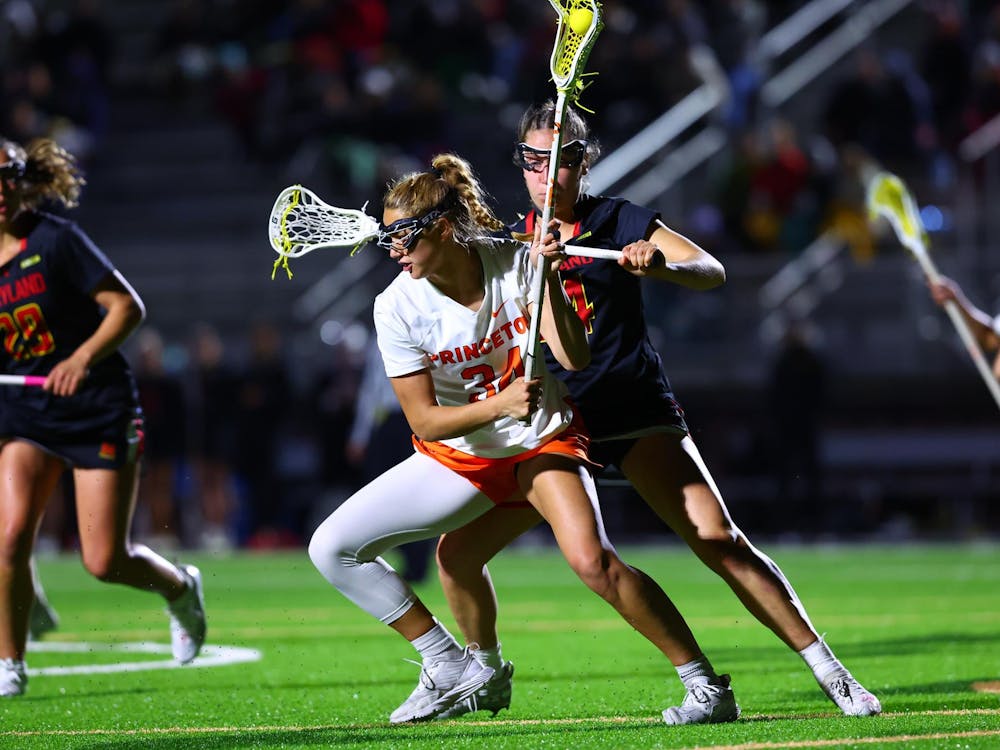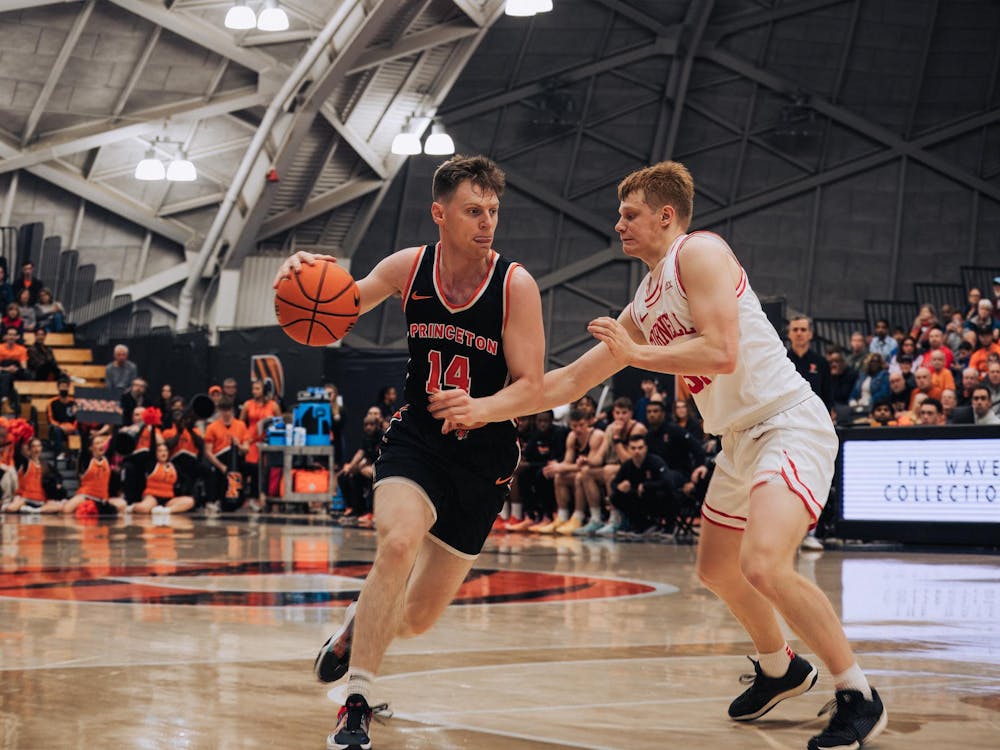University Vice President and Secretary Robert Durkee ’69, Trustee Robert Rivers ’53, and Director of the Army Officer Education Program for ROTC Kevin McKiernan discussed the impact of twentieth-century wars on University life at a panel Wednesday, Feb. 28.
“The impact of war on campus has a lot to do with how directly it affects the campus community and how much the campus community either supports or cares about the objectives of the war,” said Durkee.
Rivers, who grew up in the Princeton area during World War II, was 10 years old when Pearl Harbor was bombed on Dec. 7, 1941.
“I don’t remember a lot that happened on that day, but I do remember when Roosevelt gave that speech the following day, telling the nation that we were at war, and that changes things dramatically in the town, and dramatically at the University,” Rivers said.
Rivers’ father lost his job at Tiger Inn when, according to Rivers, the eating clubs closed during the war.
Rivers also spoke about the V-12 Navy College Training Program, which brought Princeton’s first black undergraduates to campus.
“All of the sudden in 1945, four black students show up on campus,” said Rivers. “There were a lot of questions among the Princeton University alumni, but there was a lot of joy . . . and it was a major, major thing for young black folks in the town. They were heroes.”
Rivers went on to attend the University during the Korean War. He then became the first African-American elected to the Board of Trustees during the Vietnam War, when Durkee was also in attendance as a student.
According to Rivers, during the Korean War, students were required to a take a test in their junior year to determine whether or not they would be drafted.
“If you scored above it you stayed in school, and if you didn’t get above it, you’re off to war,” said Rivers. “I passed it by one point.”
Durkee attended the University during the Vietnam War. He stated that the war had a tremendous impact on his work as editor-in-chief of The Daily Princetonian and on campus life at large.
“The very first issue we published when I was editor-in-chief, we had a story about a delegation from Princeton that went to Washington to offer what was described as ‘constructive dissent’ and to express concern about the ambiguous role of the United States in Southeast Asia and the lack of Congressional oversight,” said Durkee. “That’s still pretty tame. It changes pretty quickly in the Spring of ‘68.”

During his time on campus there was growing protest and concern as to what was happening in Vietnam, Durkee explained, as well as widespread fear about the sheer number of students who would be drafted.
According to Durkee, it was predicted at the time that 30 percent of the graduate students would be drafted, and in April of 1968 it was reported that 70 percent of the graduating class was faced with being drafted.
“As early as Feb. 5, graduate students announced they were forming a Princeton Graduate Draft Union to provide information on alternatives to the draft,” said Durkee. “The first meeting of that organization attracted 350 students. Imagine something that would attract 350 graduate students for any purpose, right?”
After graduating in 1969, Durkee opted to teach in Trenton Public Schools for three years rather than immediately pursue journalism, believing teaching to be “a better use of [his] skills instead of being drafted.”
“I realized that no one my age could have a career as a journalist because I would be drafted,” he added.
When asked whether the Gulf War had a very significant impact on his college experience, McKiernan had a very straightforward answer, “No.”
“The Gulf War really only lasted six to 12 months, I don’t think anyone really had the opportunity to mobilize about it,” said McKiernan. “The public was generally behind it, there was no call for a draft of anything. It didn’t really resonate on the campuses I was a part of.”
The talk, entitled “The Impact of War on Princeton University” was held in Seeley G. Mudd Manuscript Library’s Harlan Room on Wednesday, Feb. 28 at 1:00 p.m.









